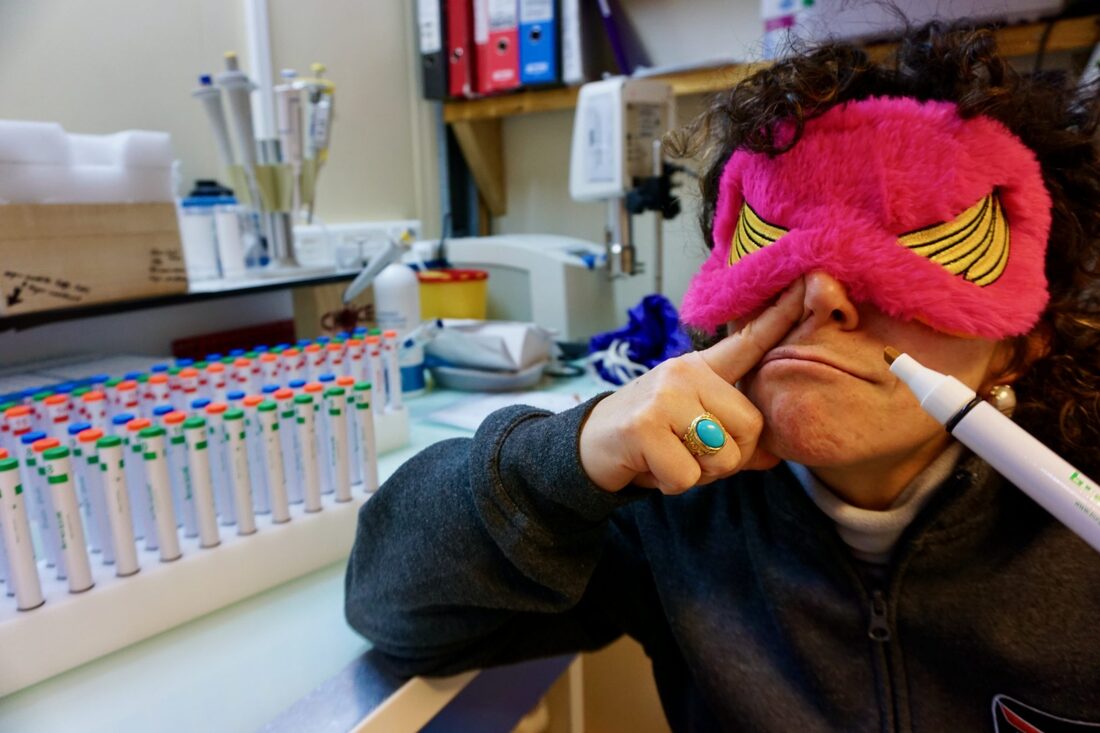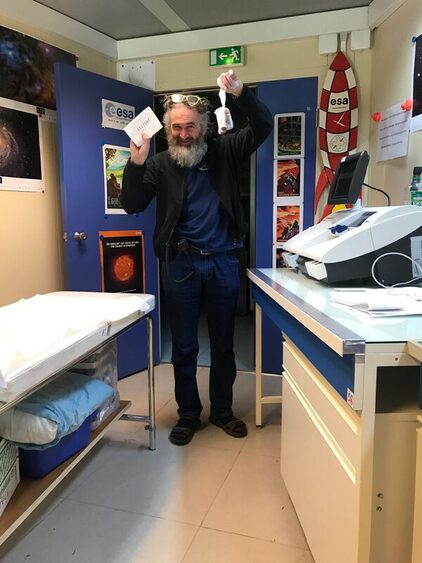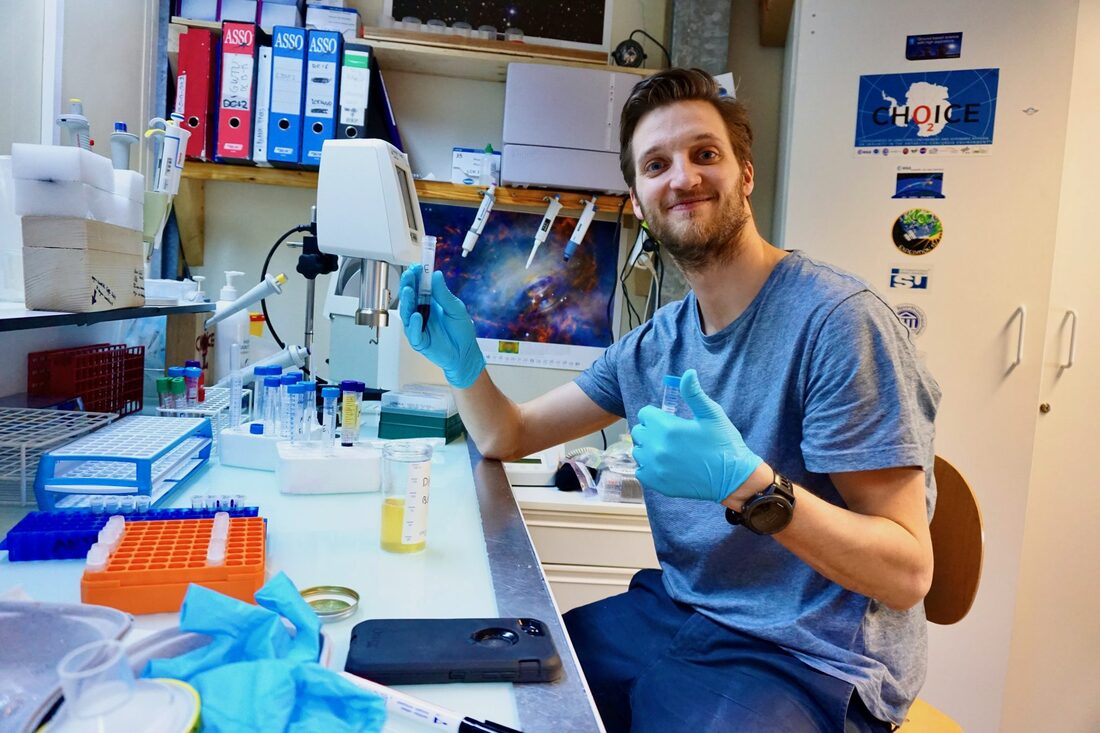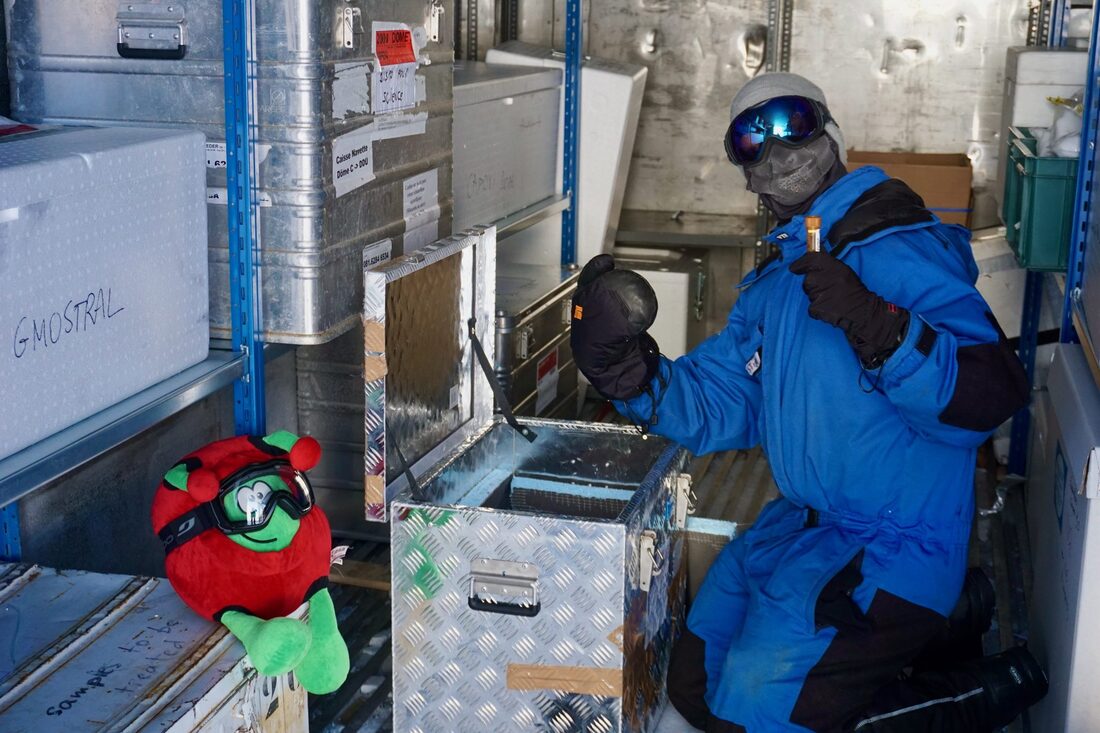|
The next instalment of a fascinating blog series by ESA-sponsored Dr Stijn Thoolen who spent a year at the Concordia research station in Antarctica. Catch-up with his previous blogs at Part 1, Part 2, Part 3, Part 4, Part 5, Part 6, Part 7 Dr Stijn ThoolenMedical Research Doctor, Concordia Research Station, Antarctica And so we keep delivering. Questionnaires about stress, physical and mental wellbeing, questionnaires about nutrition habits, stool samples, saliva samples, blood samples, taste tests with taste strips, smell tests with ‘Sniffin’ Sticks’. I make pictures of what I am eating twice a day, and our cook records our menu a whole year long. And, perhaps best of all, we all take a sachet every day, without even knowing if it contains a probiotic supplement, or nothing but just powder…  ‘This reminds me of the dentist. And this of flower fields when I was young. And this one is industrial banana for sure!’ The ‘Sniffin’ Sticks’ induce vivid memories, but do our smell and taste change in this understimulating environment? And how does that relate to our eating habits? Credits: ESA/IPEV/PNRA–S. Thoolen This time the tests are for another study called ICELAND (‘immune and microbiome changes in environments with limited antigen diversity’). ICELAND doesn’t focus on altitude, but instead uses the homogeneous environment of Concordia, another stressor to our body and mind, as a testbed for examining changes in immune health. Have you ever thought of the idea that, just like in Concordia or in space, a lack of new bacteria and viruses can actually deteriorate your immune system? Have you ever considered that we may be too hygienic? Just like losing muscles when we spend too much time on the couch, or losing skills if we don’t practice our brain, we can lose immune function when it is not stimulated, and according to the ‘hygiene hypothesis’ this may be one of the reasons for an increased incidence of asthma and skin inflammation in children in developed countries. In a similar way, prolonged isolation and confinement in the stressful and ‘clean’ environments of Antarctica or space is thought to increase susceptibility to infections and even allergies! But the immune system is complex, and the many interactions it holds with other body systems such as our digestive system and our brain are just being discovered. For example, changes in nutrition can have an effect on the composition and health of our gut bacteria, which in recent years have been found to play an important role in the development of immune-related diseases such as allergies and cancer. Other studies in addition have found gut health to be related to mental wellbeing as well. So can we maintain a healthy brain and a healthy immune system if we maintain a healthy gut? We still have much to learn about ourselves, and ICELAND aims to investigate these interesting interactions. Hence those daily sachets: comparing the test outcomes between those of us who took gut bacteria-stimulating probiotics and those who didn’t can give us valuable information about its potential to counter these health risks! Note: this article was originally posted on the ESA blog website (LINK) and permission has been obtained to republish it here.
Comments are closed.
|
Welcometo the InnovaSpace Knowledge Station Categories
All
|
InnovaSpace Ltd - Registered in England & Wales - No. 11323249
UK Office: 88 Tideslea Path, London, SE280LZ
Privacy Policy I Terms & Conditions
© 2024 InnovaSpace, All Rights Reserved
UK Office: 88 Tideslea Path, London, SE280LZ
Privacy Policy I Terms & Conditions
© 2024 InnovaSpace, All Rights Reserved



 RSS Feed
RSS Feed